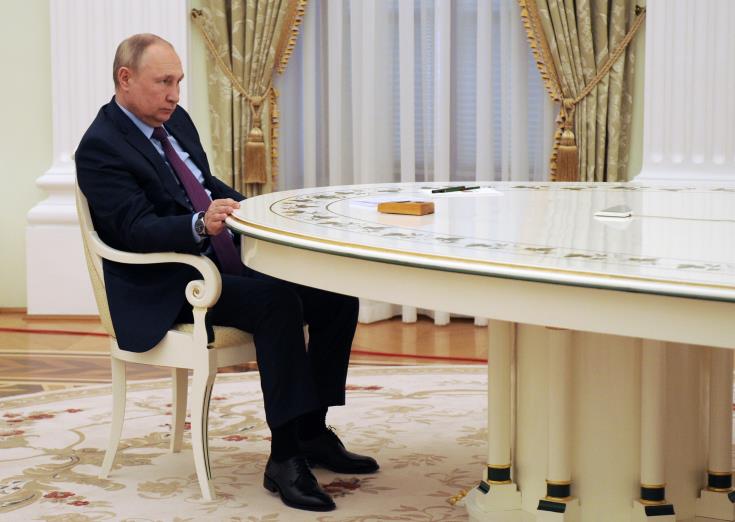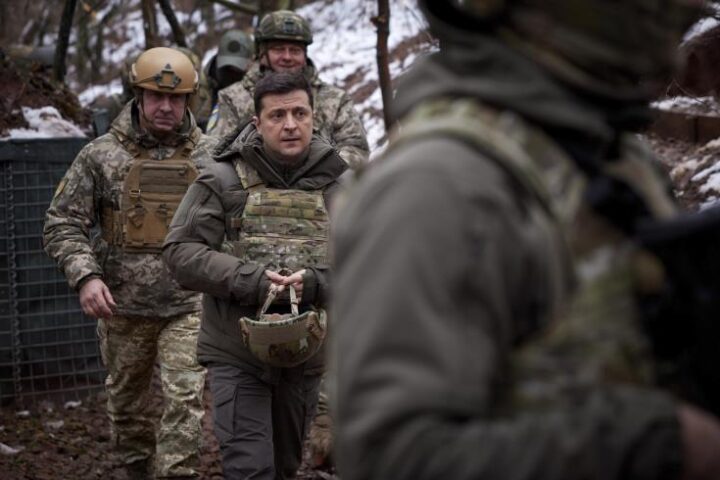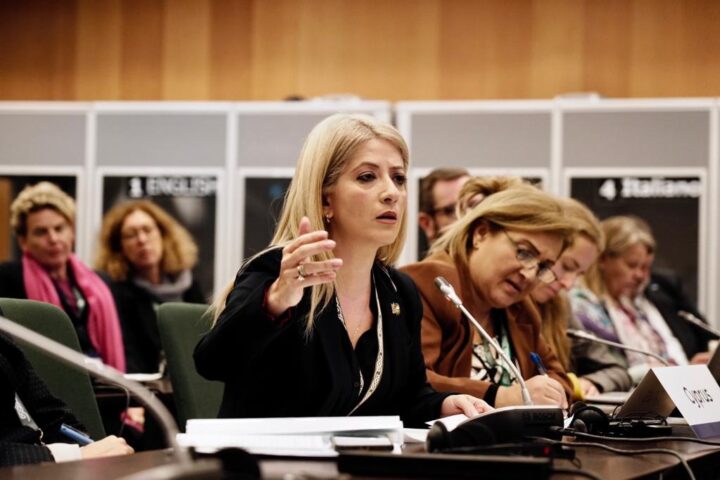Success in keeping world peace has never been long or flawless.
When NATO bombers flew over former Yugoslavia in 1999 to end the slaughter of innocent civilians by Slobodan Milosevic’s forces, they did not carry a UN mandate as required.
Yet their airstrikes were decisive in ending what became known in international affairs as ethnic cleansing, a term synonymous with the holocaust or genocide.
Moreover, it helped bring the warring parties together to decide on their common future in Dayton, Ohio.
With war out of the question, they all opted for peace.
Tens of thousands of lives were spared, and the return to peace and prosperity allowed millions to look to the future with optimism.
But at the time, many people, including Serbs, were critical of NATO’s intervention, particularly because it had no authority. Today, few dare to criticise that operation.
Others, like Kosovo’s president, recently hailed the air strikes as a saving intervention against Milosevic’s policy of ethnic cleansing.
It is not hyperbole to suggest that the action by the Western alliance had a strong moral ground.
The bombers carried and delivered instruments of cruelty and destruction, but one must consider the cruelty and destruction that would have continued without NATO’s bombing campaign.
It was an illegitimate intervention that helped bring peaceful outcomes the UN could not.
Is the restoration of good always a legitimate reason to go to war? Unfortunately, not so in the case of the second invasion of Iraq, even though deposing Saddam Hussein helped bring democracy and greater stability to the country.
Saddam was a ruthless dictator who posed a serious threat to his people and his neighbours with two major wars of aggression under his belt, and hundreds of thousands of Iraqis and Kurds killed, tortured, and wounded.
Despite the tragic loss of life of Iraqi civilians and coalition soldiers, most people in Iraq do not long for the Saddam regime.
But many point to the dramatic experience of many civilians, especially those who lost their homes, loved ones, and lives.
Some of these losses, critics argue, were crimes that, until today, have not been brought to justice.
We asked leading lawyers in Cyprus to give their views on the action taken by the International Criminal Court (ICC) against Vladimir Putin for ordering the invasion of Ukraine and continuing its occupation.
Christos Pourgourides, Barrister-at-law, a former member of the Cyprus Parliament and former president of the Human Rights Committee of the Council of Europe.
What is the ICC, and what prompted the arrest warrant for Vladimir Putin? How can such a warrant be executed?
The International Criminal Court is an intergovernmental organisation and international tribunal seated in the Hague, Netherlands.
It was founded in 2002 when the international treaty called the Rome Statute was ratified by the required number of states.
The ICC investigates and, where possible, tries individuals charged with the gravest crimes of concern to the international community: genocide, war crimes, crimes against humanity and the crime of aggression.
There were complaints by the government of Ukraine and various NGOs, as well as reports in the media, that Russia, in the course of its military invasion of Ukraine, did commit war crimes.
The most serious allegations concerned the illegal transfer of thousands of Ukrainian children to areas under its control.
The illegal transfer of children is a crime against International Humanitarian Law.
There were also allegations about other war crimes, including attacks on hospitals, torture, rape, and willful killings.
These complaints were investigated by the ICC’s investigators, who collected evidence from eyewitnesses and various other sources.
These materials were placed before the Court’s judges responsible for issuing warrants of arrest, who decided there was enough evidence personally implicating Mr Putin. As a result, a warrant for his arrest was issued.
Russia has not ratified the Statute of Rome, and therefore Russia is not obliged to execute the warrant.
But 123 states have ratified the Statute, and if Mr Putin travels to any of them, he can be arrested.
What crimes is President Putin accused of, and what are the political implications?
The claims focus on the unlawful deportation of children from Ukraine to Russia since Moscow’s invasion in 2022.
But the UN Commission of Inquiry on Ukraine has recently released its report, which says that other war crimes have been committed, including crimes against humanity, such as the attacks on Ukraine’s energy infrastructure.
The political implications are many and serious.
The most important is that Mr Putin would be regarded as a suspected war criminal from now on.
His image and the image of his government would be greatly damaged.
International investors would not be prepared to consider investing in a country whose president is a fugitive offender.
It would also make it easier to lay hands on Russia’s assets in banks in Europe and elsewhere.
Countries like India, which are Russia’s close economic partners, would be pressured to change their policy.
Some say the ICC is hypocritical because other countries in the past have also committed war crimes, and yet they have gotten away with them. So how do you answer them?
Those who charge the ICC’s action as being hypocritical have a point.
Countries like the US and Israel should have been investigated for alleged war crimes. The USA for possible war crimes in Afghanistan and Israel in Palestine.
President Biden welcomed the ICC’s actions as justified and having made “a very strong point”.
But at the same time, media reports say the Pentagon refused to share with the ICC evidence gathered by US intelligence services of Russian atrocities in Ukraine for fear that providing the Court with such material may set “a precedent that might help pave the way for it to prosecute Americans”.
But the warrant of arrest against Putin may put pressure on the leaders of the US and Israel to change their double standards.
Certainly, it is a good move, even if the Court failed to do the same in other similar situations.










